If your dog is not eating and has a black stool, there could be a number of things wrong. There are a lot of things that can cause this behavior and some of them need immediate attention.
In this blog post, we’ll discuss some of the most common causes of black stool in dogs and what you can do to help your furry friend feel better.
Key Takeaway
- Your dog having black stool and not eating could indicate a serious health issue, such as gastrointestinal bleeding or obstruction, and should be evaluated by a vet immediately.
- Black stool in dogs is often an emergency, as it could indicate the presence of digested blood in the dog’s digestive tract, suggesting issues such as internal bleeding, ulcers, or tumors, which require immediate veterinary attention.
My Dog Has Black Stool and Is Not Eating
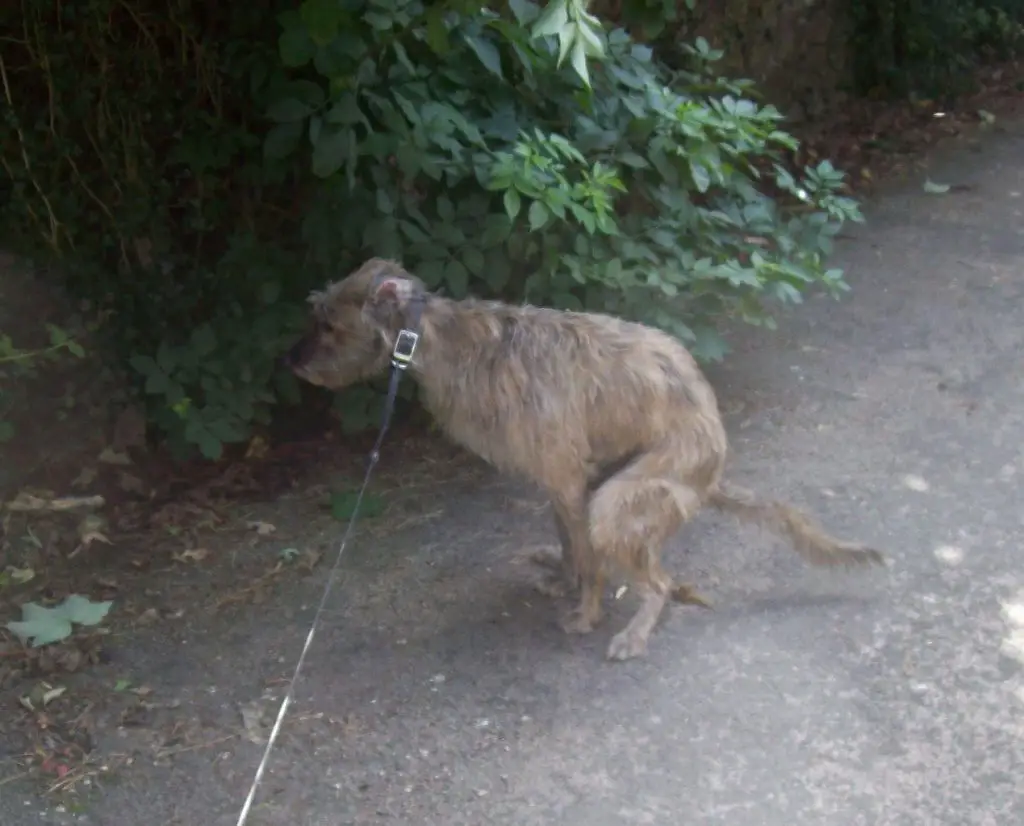
Black stool and lack of appetite in your dog could signify a condition such as gastrointestinal bleeding, damage from ingesting sharp objects, or diseases of the liver or kidneys.
Black or tar-colored feces in dogs, also known as ‘melena’, often indicates the presence of digested blood in the dog’s digestive tract, specifically from the upper gastrointestinal tract.
This could be a result of various issues, including ulcers, tumors, trauma, or ingestion of a sharp object that caused internal damage.
Concurrently, the lack of appetite could be a symptom of the same underlying issue causing the black stool or a separate condition altogether, such as an infection, liver or kidney disease, or even stress. Both symptoms are concerning and warrant immediate veterinary attention.
The vet will likely perform diagnostic tests to identify the exact cause and formulate an appropriate treatment plan. Remember, prompt action can significantly improve your dog’s prognosis.
Is Black Stool In Dogs An Emergency?
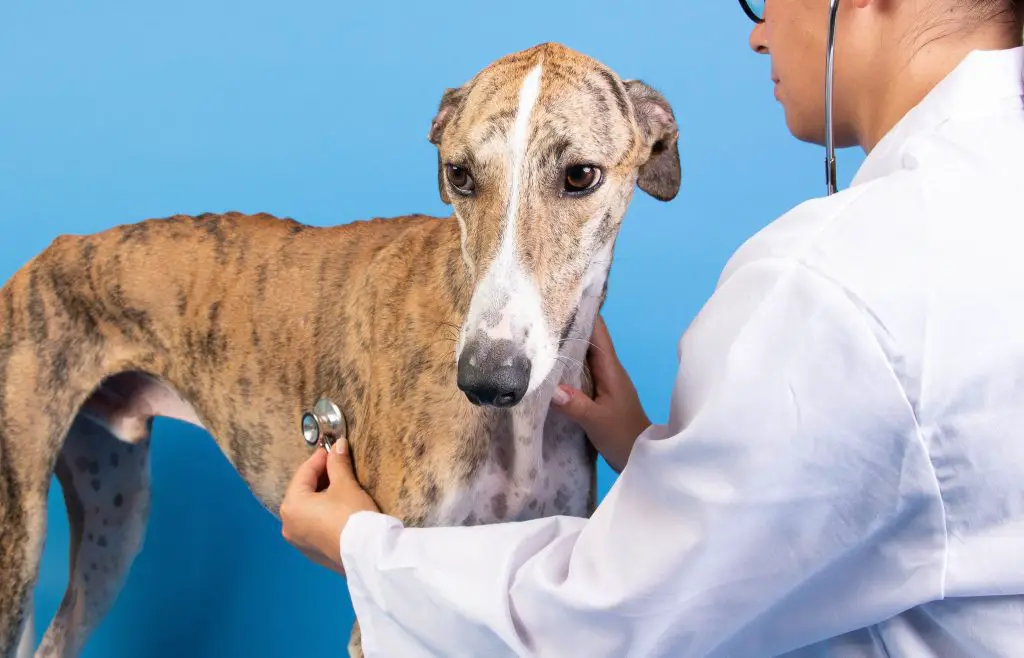
Black stool in dogs is generally considered an emergency, as it could suggest a serious health issue like internal bleeding or gastrointestinal disorders.
When you notice black or tar-like stool in your dog, also known as ‘melena’, it typically indicates the presence of digested blood in their digestive tract.
This could be due to a variety of serious health problems such as ulcers, tumors, or trauma in the upper gastrointestinal tract, or it might result from the dog swallowing a sharp object that has caused internal damage.
These conditions are often severe and can deteriorate rapidly, making it crucial to seek immediate veterinary attention.
Your vet will likely perform a series of diagnostic tests to determine the exact cause of the black stool and then propose the appropriate treatment plan.
Remember, the sooner you act, the better the chances of a positive outcome for your pet says Vet Help Direct.
Why Is My Dog’s Poop Dark Black?
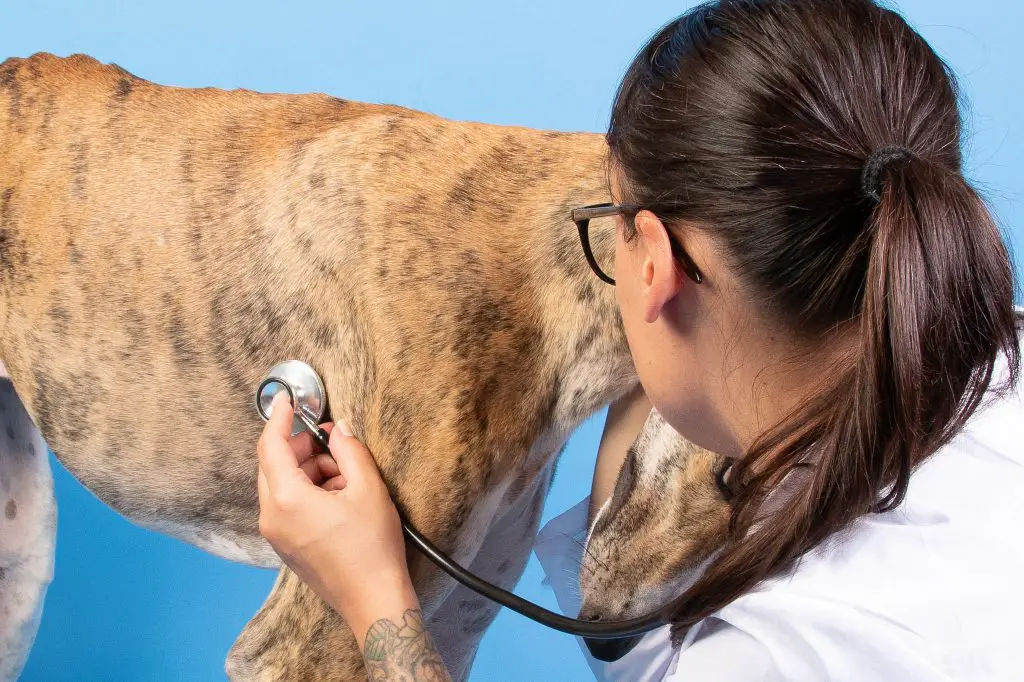
There are a lot of reasons that can cause black stool in dogs. Some of them are very serious while others are not. However, if you notice any changes in your dog’s poop, it is very important to get to the vet to rule out any serious causes.
1. Internal bleeding
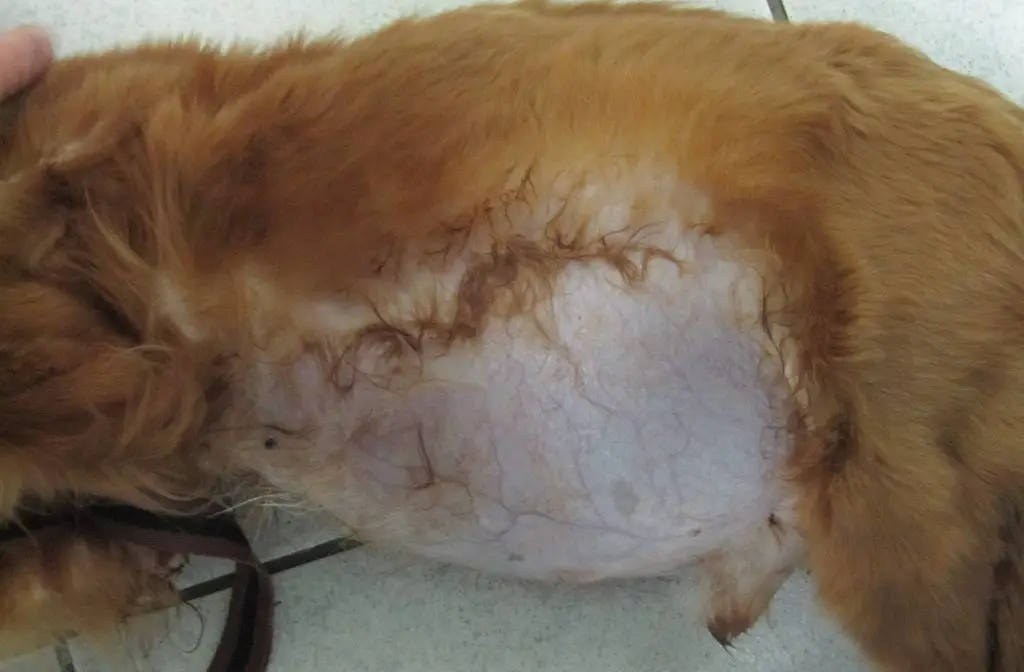
Internal bleeding in dogs can cause black stool for a number of reasons. One reason is that when blood is digested, it turns black and can give the stool a tarry appearance. Another reason could be that the blood is coming from higher up in the digestive tract, such as the stomach or small intestine, and has not had time to turn black before exiting the body.
If you notice your dog has a black stool, it’s important to take them to the vet right away as this could be a sign of a serious condition. Blood in the stool can also lead to anemia, so it’s important to get your dog checked out as soon as possible.
2. Liver disease
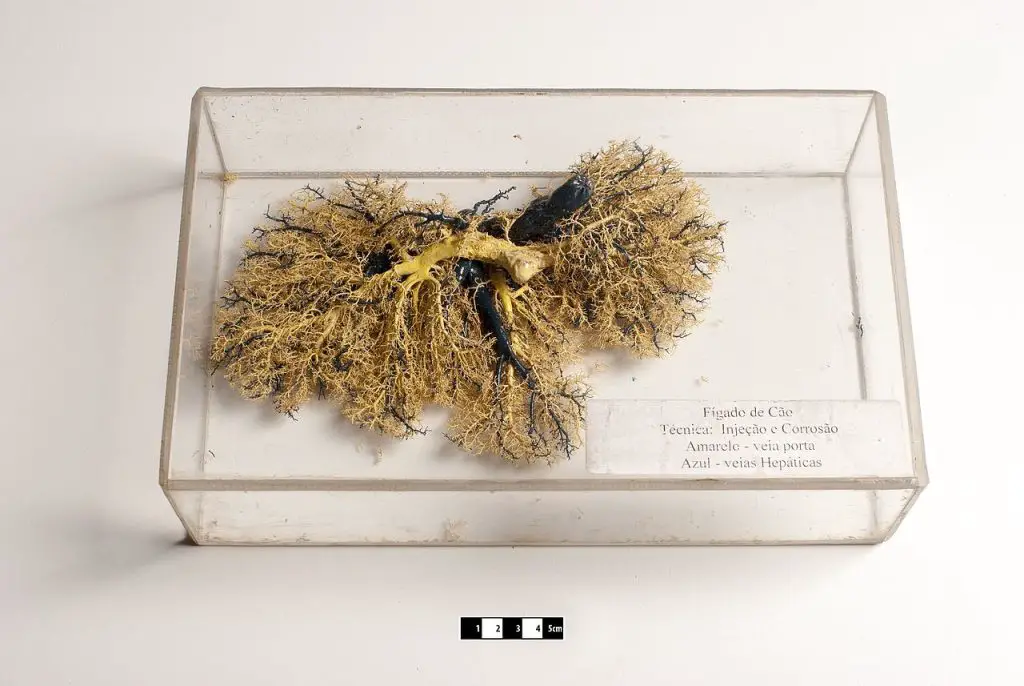
Liver disease is a common cause of black stool in dogs. When the liver is not functioning properly, it cannot produce bile. Bile is necessary for the digestion of food and the absorption of nutrients.
Without bile, digested blood can appear in the stool, which gives it a black color. Liver disease can be caused by many different things, including infections, tumors, and autoimmune diseases.
If you notice your dog’s stool is black and tarry, or if your dog is showing other signs of liver disease, such as weight loss, lethargy, or vomiting, take him to the vet for an evaluation. Treatment for liver disease will vary depending on the underlying cause but may include medication, surgery, or dietary changes.
3. Food intolerance
There are many different types of food intolerance that can cause black stool in dogs. The most common type is an intolerance to lactose, which is found in milk and dairy products. Other common food intolerances include wheat, corn, soy, and eggs. Food intolerances can also be caused by certain preservatives, dyes, or flavorings.
Symptoms of food intolerance vary from dog to dog but may include diarrhea, vomiting, weight loss, and abdominal pain. Black stool is often seen as a symptom of food intolerance because the body cannot properly digest the offending food and it passes through the digestive system undigested.
If you suspect your dog has a food intolerance, talk to your veterinarian about how to best manage and adjust their diet.
4. Ingestion of certain plants

Many plants contain compounds that can cause black stool in dogs when ingested. These compounds interact with the digestive system to cause a variety of problems, including digestion issues and black stool. In some cases, these compounds can also be toxic to dogs and may cause other health problems.
If you suspect your dog has ingested a plant that may cause black stool, it is important to contact your veterinarian immediately.
Treatment will vary depending on the type of plant consumed and the severity of the reaction. Some plants, such as senna, can be safely removed from the diet without causing any lasting damage, while others, such as oleander, can be deadly if not treated immediately.
How Do You Treat Black Stool In Dogs?
Treating black stool in dogs involves identifying the underlying cause and addressing it with appropriate veterinary care, which may include dietary changes, medications, or even surgery.
Dietary Changes
If the cause of the black stool is related to diet, such as the ingestion of certain foods or substances that have caused temporary digestive upset, a simple change in diet may resolve the issue.
This could involve switching to a different type of dog food, reducing the amount of human food your dog consumes, or eliminating certain treats or chew toys from your dog’s routine.
Medications
There are also several types of medication that can be used to treat black stool in dogs. For example, activated charcoal is often administered if a dog has ingested a harmful toxin. This substance helps to absorb the toxin and prevent it from causing further harm.
Other medications that can cause black stool include Pepto Bismol and certain prescription drugs. If your dog’s stool turns black after starting a new medication, it’s important to consult with your vet to determine whether the medication should be adjusted or discontinued.
Veterinary Care
In more serious cases, black stool can be a sign of internal bleeding or other severe health conditions. These situations typically require prompt veterinary care.
Treatment might involve surgery to repair internal damage, transfusions to replace lost blood, or other interventions. In addition, your vet may recommend plenty of rest and specific care instructions to help your dog heal.
What Parasite Causes Black Poop In Dogs?
Parasites such as hookworms and whipworms are known to cause black poop in dogs.
Hookworms and whipworms are types of internal parasites that can infest a dog’s digestive tract.
As a hookworm detaches from the intestinal wall, it can cause bleeding which results in black, tarry stool. Similarly, whipworms can also lead to similar symptoms when they infest a dog’s intestines.
These parasites are usually transferred when dogs ingest infected feces or soil, or in the case of some hookworms, through skin contact with contaminated soil.
Infestation can lead to various health problems, including anemia, weight loss, and severe diarrhea.
It’s important to note that black or tar-like stool, known as ‘melena’, often indicates the presence of digested blood in the stool. This could be due to internal bleeding caused by the damage these parasites inflict on the intestinal wall.
FAQs
Q: What could be causing my dog’s lack of appetite?
A: There are many possible reasons for a dog’s lack of appetite, including illness, stress, dental issues, or changes in their environment. If your dog is not eating, it is recommended to seek veterinary advice to determine the underlying cause.
Q: Should I be concerned if my dog has black stool?
A: Black stool in dogs can indicate bleeding in the gastrointestinal tract. It is important to take this symptom seriously and consult with your veterinarian as soon as possible for a proper diagnosis and treatment.
Q: Can certain medications cause black stool in dogs?
A: Yes, certain medications, such as anti-inflammatory drugs or certain antibiotics, can cause black stool in dogs as a side effect. If you suspect that a medication is the cause, consult your veterinarian for further guidance.
Q: What other symptoms should I look for if my dog has black stool?
A: Along with black stool, you should observe your dog for other symptoms such as vomiting, diarrhea, abdominal pain, lethargy, or loss of appetite. These additional symptoms can provide valuable information to your veterinarian for diagnosis.
Q: Can stress be a possible cause for my dog’s black stool and loss of appetite?
A: Yes, stress can affect a dog’s digestive system and lead to changes like black stool and loss of appetite. It is important to identify and address the underlying factors causing stress in your dog’s life to restore their appetite and normal bowel movements.
Q: What tests might the veterinarian recommend for my dog with black stool and loss of appetite?
A: The veterinarian may suggest various diagnostic tests, including blood work, fecal examination, abdominal X-rays, or ultrasound, to determine the cause of your dog’s black stool and loss of appetite.
Q: What are some possible treatments for a dog with black stool and loss of appetite?
A: The specific treatment will depend on the underlying cause of your dog’s symptoms. It may involve medications, dietary changes, addressing stress factors, or treating any underlying illnesses or infections.
Q: Is it safe to wait before seeking veterinary advice if my dog has a black stool and is not eating?
A: It is generally not advisable to wait when your dog has a black stool and is not eating. These symptoms could be signs of a serious underlying condition, and prompt veterinary attention is crucial for proper diagnosis and treatment.
Q: How can I prevent my dog from having black stool and loss of appetite?
A: Preventing black stool and loss of appetite requires providing a balanced diet, regular veterinary check-ups, ensuring a stress-free environment, and promptly addressing any health issues or concerns that arise.
Conclusion and final thoughts
In conclusion, if your dog is exhibiting signs of black stool and lack of appetite, it is important to seek veterinary attention immediately.
These symptoms could indicate a serious underlying health issue that requires prompt treatment.
By providing specific details about your dog’s condition and monitoring their behavior closely, you can help your veterinarian make an accurate diagnosis and develop an effective treatment plan.




